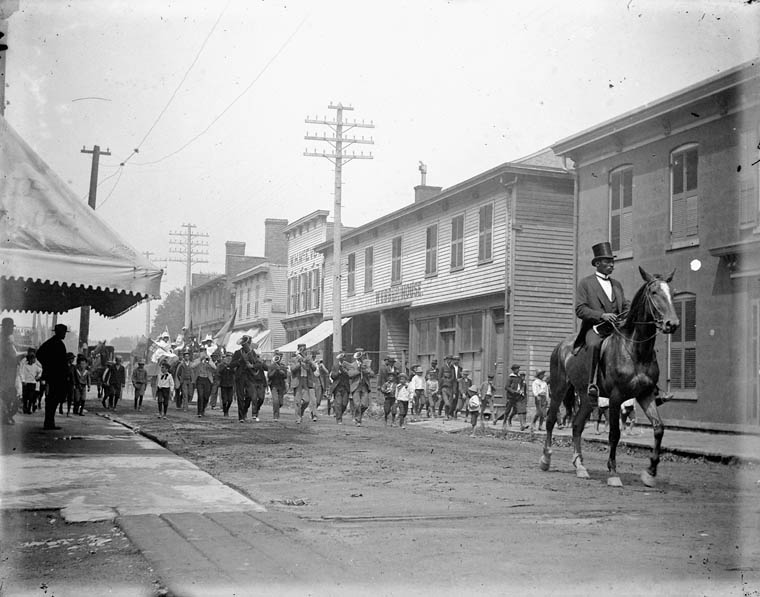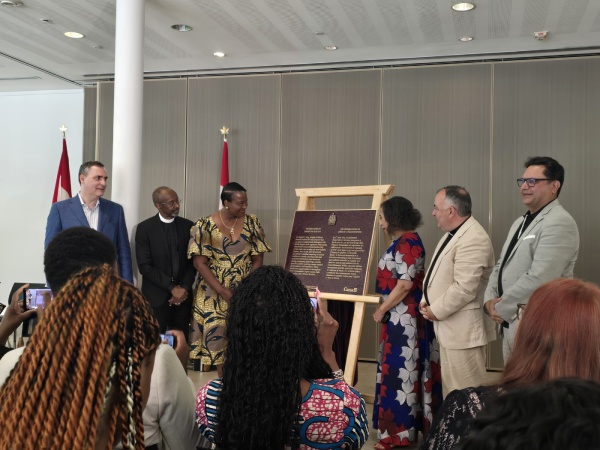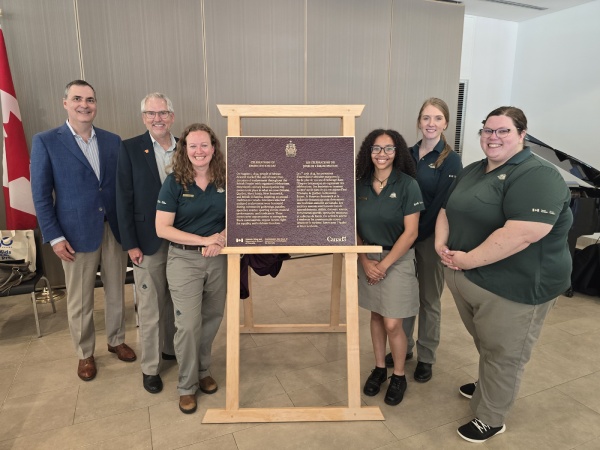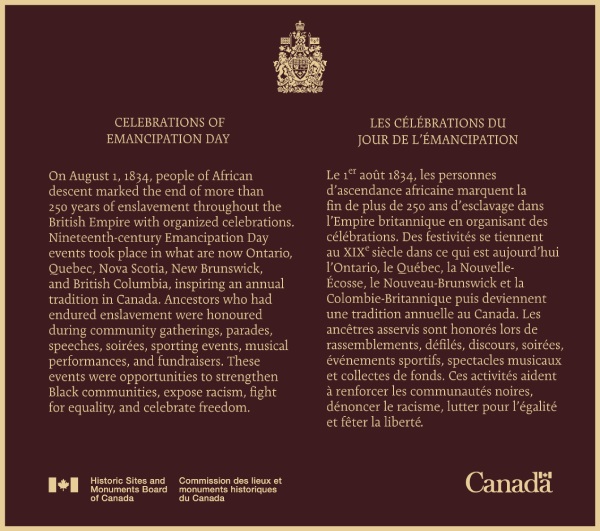Celebrations of Emancipation Day National Historic Event

© Library and Archives Canada / PA-163923
The celebrations of Emancipation Day were designated as a national historic event in 2022.
Historical importance: people of African descent in Upper and Lower Canada marked the abolition of enslavement in 1834 with organized celebrations that gave rise to annual events.
Commemorative plaque: will be installed at Cathedral Church of St. James, 106 King Street East, Toronto, OntarioFootnote 1
Celebrations of Emancipation Day
On August 1, 1834, people of African descent marked the end of more than 250 years of enslavement throughout the British Empire with organized celebrations. Nineteenth-century Emancipation Day events took place in what are now Ontario, Quebec, Nova Scotia, New Brunswick, and British Columbia, inspiring an annual tradition in Canada. Ancestors who had endured enslavement were honoured during community gatherings, parades, speeches, soirées, sporting events, musical performances, and fundraisers. These events were opportunities to strengthen Black communities, expose racism, fight for equality, and celebrate freedom.
Celebrations of Emancipation Day
Emancipation Day celebrations began on 1 August 1834, when people of African descent in Upper and Lower Canada marked the end of more than 250 years of enslavement throughout the British Empire. Nineteenth-century events celebrating Emancipation Day took place in what are now Ontario, Quebec, Nova Scotia, New Brunswick, and British Columbia, inspiring an annual tradition that continues to this day throughout Canada.
The Slavery Abolition Act was passed by the British Parliament in 1833 and took effect on 1 August 1834, legally ending the centuries-old system of colonial enslavement of people of African descent throughout the British Empire. Emancipation was immediate in what is now Canada and in other colonies such as Bermuda and Antigua. Elsewhere in the British Caribbean, the transition to freedom took another three or four years as formerly enslaved people were forced to serve mandatory periods of apprenticeship imposed by the Act as additional compensation to slaveholding planters. By 1838, roughly one million people of African descent had been legally freed in Great Britain and its colonies.


In what is now Canada, annual celebrations were often known as West Indian Day because the largest number of enslaved people who were freed lived in the Caribbean (called the West Indies by European colonists). Later these events became known as August First and Emancipation Day. Festivities ranged from small picnics to grand public affairs, typically with church services, parades, communal meals, formal dinners, and entertainment. These commemorations offered opportunities for social connection, fostering pride in African ancestry and solidarity, education, and reflection on the past, present, and futures of diasporic African communities. People of various ancestries took part in the parades and other August First events, alongside one another, either as participants or spectators.
“The resistance and joy of the newly freed, formerly enslaved Africans here was expressed by August 1st Emancipation Day celebrations, speeches and activism across Canada effective in 1834. I am honoured that my ongoing quest to have August 1st as Emancipation Day commemorated, which began in 1994, have been successful. With joy and recognition comes hope.”
“It is with immense jubilation that Celebrations of Emancipation Day as a National Historic Event has been accepted for designation. This federal recognition honours the celebrations of the Emancipation of a people taken forcibly from their nation, enslaved for 400 years, bought and sold like chattel, herded like cattle; yet, rising triumphantly above it all to not merely survive but thrive in our genius; Emancipation mi seh! Ase ancestors!”
Emancipation Day events were acts of remembrance of ancestors who had endured more than 250 years of enslavement. They also became opportunities for mobilization against enslavement in the United States until it was abolished there in 1865, and against systemic racism and segregation as those persisted in Canada. Over the years, prominent African Canadian and American leaders such as Henry Bibb, Reverend Richard Preston, Reverend Josiah Henson, and civil rights activist Dr. Martin Luther King, Jr. delivered powerful speeches at Emancipation Day events. Fundraising activities led to the construction of much-needed community institutions such as schools and churches. Celebrations of Emancipation Day represent the strength and perseverance of African Canadians in the fight for racial equality during the 19th and 20th centuries, and into the present.
This press backgrounder was prepared at the time of the plaque unveiling in 2024.

The National Program of Historical Commemoration relies on the participation of Canadians in the identification of places, events and persons of national historic significance. Any member of the public can nominate a topic for consideration by the Historic Sites and Monuments Board of Canada.
- Date modified :